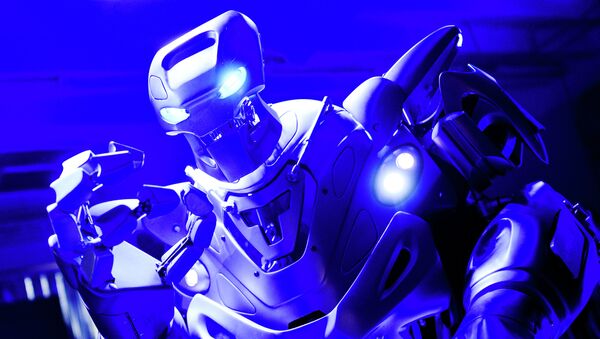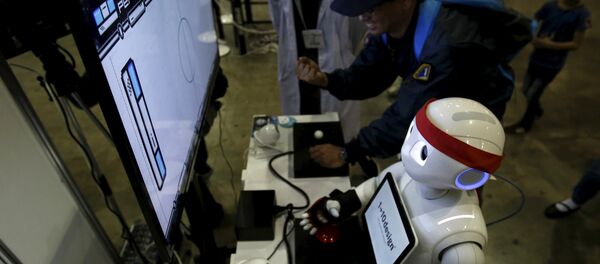Such a robot could "run military hardware, single out terrorists in a crowd or serve as an air traffic controller," Sergei Garbuk said on the sidelines of a conference held in Russia's Republic of Tatarstan.
The ARF was established in 2012 as an equivalent of the US Defense Advanced Research Projects Agency, or DARPA, to conduct cutting-edge research for Russia's Armed Forces. The ARF adopted 49 projects, with 26 being in development.
What's in store?
The Russian agency is working on creating an artificial intelligence system capable of solving rational tasks so that it would be able to replace a human being performing them, Sergei Garbuk explained.
"According to our estimates, the list will consist of some 30 – 40 tasks. We will focus on them," Garbuk said. These tasks involve facial recognition, recognizing people by the way they walk, decision making in unpredictable circumstances, etc.
Various state agencies are highly interested in the success of this project, he added.
Is robot apocalypse inevitable?
“The development of full artificial intelligence could spell the end of the human race.” ~ Stephen Hawking
— Lino's Version (@LinosVersion) 17 мая 2015
Some, like Tesla CEO Elon Musk and renowned theoretical physicist Stephen Hawking, warn that computers will take over the Earth soon after they become self-aware. This could spell the end of the world as we know it since robots will be in control while human race struggles to survive.
Worth reading Superintelligence by Bostrom. We need to be super careful with AI. Potentially more dangerous than nukes.
— Elon Musk (@elonmusk) 3 августа 2014
This idea lacks scientific basis, according to Sergei Garbuk, who called this scenario unsubstantiated.
"Modern doomsday movies divert public attention from the heart of the matter instead helping to spread an unscientific notion and hampering technological progress," he said.




